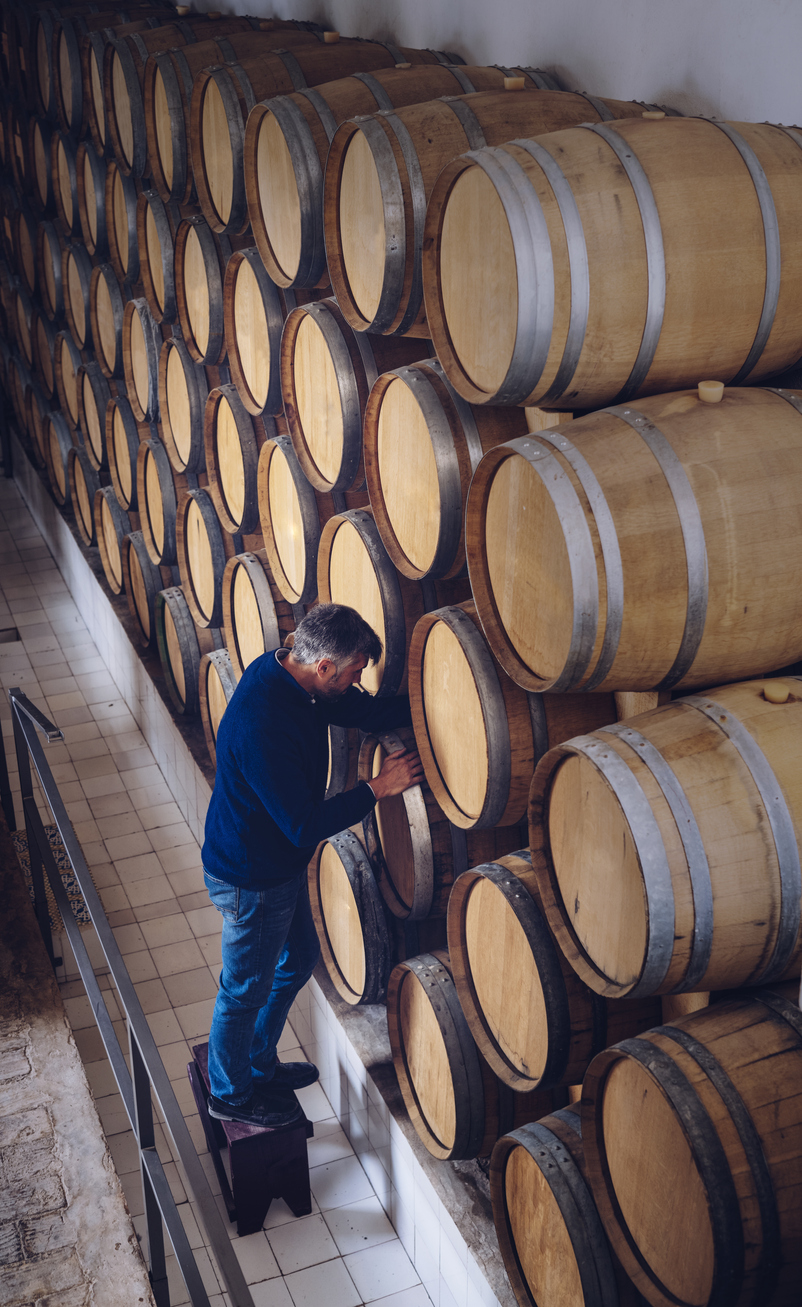Good and adequate nutrition means resorting to natural ingredients, i.e. raw materials that have not been subjected to preservation processes, among other transformations. Organic is synonymous with natural and ecological, which also means minimising any potential damage to the environment. Wine is also joining this organic foods movement.
Natural wine presents itself as a ground-breaking alternative. Its “naturalness” owes to its production via grape fermentation without residues of synthetic chemicals or aggressive processes, where the only (albeit optional) ingredient is low-dose sulphur.
At present, in line with current regulations, winegrowers can use artificial yeasts, antioxidants, acidity regulators, antimicrobials, electrolysis, micro-oxygenation … in addition to other substances that are more harmful to human health, such as pesticides, which in turn change the wine’s taste and aroma.
The key to an organic wine is the fact that the grapes are grown without using fertilisers or pesticides. However, once in the cellar, organic wine is produced pretty much in the same way as traditional wine.

Are You Aware Of The Differences Between Traditional Wine And Organic Wine?
In order to become an organic wine expert, you must start by learning what distinguishes it from traditional wine. The look and feel already tells us whether a wine is organic or not. An organic wine bears the organic farming production logo—a sun and a moon on a blue background with three diagonal lines—on the back label. It must also feature a green leaf with a star trim logo, which certifies ecological products at the European level.
Thanks to those two logos, you can rest assured that you are dealing with a wine that guarantees that its entire production process has been produced according to ecological standards and the winery is subject to annual inspections to ensure that both certificate requirements are continuously met. In addition, they also guarantee that the vineyard has been examined for 10 years to verify that no pesticides have been used throughout that period of time.
Other organic wine identifying data:
Chemicals
In an organic wine, you will never find preservatives or other chemical substances modifying its molecular structure.
Fertilisers
The only fertilisers used in organic vineyards are manure and compost – i.e. natural substances that do not interfere with the grapes’ nature.
Pests
By preserving a more absolute biodiversity, organic vineyards prevent the breeding and spreading of pests. Hence, fumigating will not be necessary.
Quality
Synonymous with its purity, the quality of an organic wine is superior because all its ingredients are of natural origin.
Taste
Owing to all its production characteristics, the flavour of organic wines, as they age, is richer.
Cost
Due to the entire associated production process, the price of organic wine tends to be 15% higher.
You know that at The Wine & Country Club the process of winemaking—with the grapes from your private vineyard—is fully traditional, and, therefore, natural. Ana de Castro, the Club’s oenologist, sees to it that the day-to-day field and cellar work is fully organic.
If you also want to be the proud owner of good organic wine, all you need to do is experience a new life at The Wine & Country Club.




